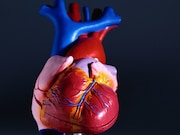Patients with cardiogenic shock have increased mortality in hospital, at 60 days and five years
TUESDAY, Nov. 13, 2018 (HealthDay News) — For patients with takotsubo syndrome (TTS), those with cardiogenic shock (CS) have an increased risk for mortality, according to a research letter published online Nov. 10 in Circulation to coincide with the annual meeting of the American Heart Association, held from Nov. 10 to 12 in Chicago.
Davide Di Vece, M.D., from the University Hospital Zurich, and colleagues analyzed data from 2,078 patients included in the International Takotsubo Registry from 2011 to 2017; 9.5 percent of these patients had CS.
The researchers found that patients with CS more often experienced physical triggers compared with those without CS (66.7 versus 33.0 percent), whereas emotional stress was more prevalent in patients without CS (10.6 versus 31.7 percent). The prevalence of major cardiovascular risk factors was higher among those with CS, including diabetes mellitus (21.0 versus 14.8 percent) and smoking (27.4 versus 19.3 percent). In the TTS cohort, apical TTS, physical stress, left ventricular ejection fraction <45 percent, and atrial fibrillation on admission were independently associated with CS (odds ratios, 1.68, 2.84, 2.49, and 2.03, respectively). The rates of in-hospital and 60-day mortality were significantly higher for patients with CS versus those without; mortality was also elevated at five years.
“Beyond the higher short-term mortality, for the first time this analysis found people who experienced broken heart syndrome complicated by cardiogenic shock were at high risk of death years later, underlining the importance of careful long-term follow-up especially in this patient group,” Templin said in a statement.
Copyright © 2018 HealthDay. All rights reserved.








